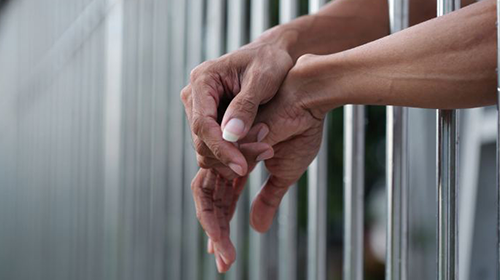
Why is Benton County’s system illegal?
Debtors’ prisons are clearly prohibited by the United States and Washington Constitutions. A person cannot be jailed or sentenced to partial confinement on a work crew simply because they are too poor to pay LFOs, and the County must ensure that there is a meaningful inquiry into a person’s ability to pay. That is not happening in Benton County, which instead uses a combination of partial confinement in a work crew, threats of incarceration, and incarceration to generate revenue.
Is Benton County’s system unique?
Other counties in Washington jail individuals who have failed to pay LFOs, but we have yet to uncover a county that uses jail and work crew on the same scale as Benton County.
Benton County’s system is particularly egregious because it is longstanding, involves multiple branches of government, and has been maintained even though policymakers are aware of its deficiencies.
Why does Benton County do this? It seems like it would cost more to jail people than to just send cases to collections?
The County appears to have kept this illegal system in order to generate revenue. County policymakers have made statements indicating that the County’s system generates revenue in 3 ways.
First, the use and threatened use of incarceration or partial confinement on work crew often leads indigent people to make LFO payments before addressing basic living needs. Some indigent people have used funds from needs-based public assistance programs to pay LFOs because they fear falling victim to partial confinement and jailing.
Second, the County benefits from forced free manual labor of people sentenced to work crew.
Third, if a person is incarcerated for nonpayment of LFOs in a case initially prosecuted by the cities in Benton County, the cities pay the County approximately $70 per day to jail that person. The cities use the money to defray the fixed costs of running the jail.
Doesn’t it mean that people had the money to pay if they are able to come up with the money upon being threatened with jail?
The plaintiffs in this case and many other indigent people can only come up with money to pay by forgoing basic living expenses in order to pay LFOs. Some of them are forced to choose between paying their child support or an electric bill and paying their LFOs. Our criminal justice system should not force people to forgo basic necessities to satisfy LFO payments, and alternatives should be available to those without financial resources.
Just as importantly, significant numbers of people aren’t able to come up with the funds to avoid jail: every day, dozens of people sit in Benton County jail or labor in partial confinement on the county work crew because they cannot come up with the funds to pay.
Why does the County feel the need to generate revenue in this way?
In Washington, and around the country, cities and counties have increasingly turned to LFOs as a way to fund the criminal justice system and to raise general money for government functions. Policymakers have increasingly relied on funding a growing criminal justice system on the backs of poor people. The practices in Benton County result from those incentives.
Is this like what happened in Ferguson?
Debtors’ prisons are a national problem, although the way they operate can vary by locality. The common thread is that people are being jailed or sentenced to partial confinement because they are too poor to pay LFOs without the constitutionally required inquiry into their ability to pay and meaningful representation by counsel.
Nationwide, these practices breed mistrust and cause the poor to question the legitimacy of the criminal justice system.
Some have said that people jailed for LFOs are career criminals who deserve to be punished. Don’t LFOs hold people accountable?
We recognize that people should be held accountable for criminal behavior. But LFOs should be imposed and collected in ways that account for people’s financial circumstances and give people fair opportunities to pay their debt to society.
Too often, criminal justice and LFO systems make it impossible for people to break the cycle of incarceration and become productive members of society.
Reese Groves, one the plaintiffs in this lawsuit, is a clear example of the ways our LFO collection system systems make it difficult for poor people to satisfy their obligations, leave the criminal justice system, and move on with their lives. Reese’s troubles started when he was unable to pay traffic tickets. Those unpaid tickets led to a suspension of his driver’s license. But Reese couldn’t pay the tickets and care for his family unless he worked, and he couldn’t work unless he drove. When Reese drove, he would get additional criminal charges for driving with a license suspended. Those charges led to even more LFO debt. And his ability to get work to pay his LFO debt was undermined by the county’s jailing him for non-payment. Essentially, Reese was trapped by Benton County’s LFO system.
Benton County’s LFO system disproportionately punishes people without economic resources, whereas a person with the ability to immediately write a check would face no consequences for similar behaviors. We all benefit when people who have committed crimes have meaningful opportunities to get jobs, build stable lives for their families, and keep out of jail.
These people all have public defenders; so why aren’t the lawyers preventing the violation of people’s rights?
The County is responsible for creating and maintaining a constitutional system of public defense. But the County has failed to adequately fund the public defenders to enable them to do their jobs. Without adequate funding, the public defenders have unreasonable caseloads and insufficient training and supervision. The deficiencies in the County’s public defense system contribute to the overall deficiencies in the County’s LFO collection system.




